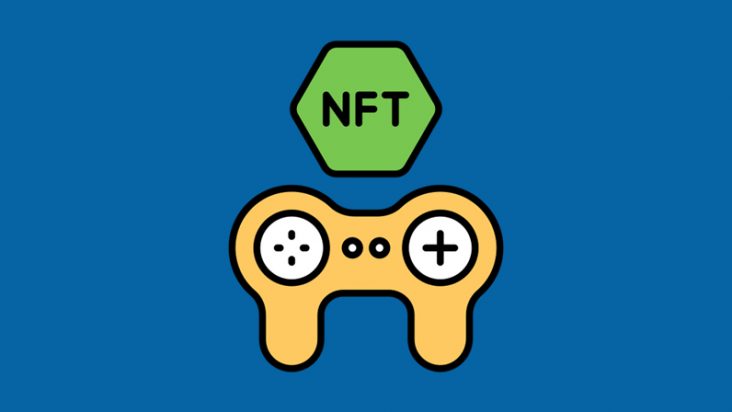![Best Selling Game Franchises Published by Nintendo [2024] Best Selling Game Franchises Published by Nintendo [2024]](https://data40.com/wp-content/uploads/2024/12/132_header.png)
Nintendo has been a cornerstone of the gaming industry for decades, captivating players with unforgettable characters, immersive worlds, and innovative gameplay. Known for its ability to craft franchises that transcend generations, Nintendo has created a legacy of beloved games that continue to dominate the sales charts. From epic adventures with The Legend of Zelda to the universally adored Mario series, Nintendo’s franchises have become cultural icons, inspiring countless fans around the globe.
| Name | Genre | Developers | Publishers | Platforms | Release Date | Sales (units) | |
|---|---|---|---|---|---|---|---|
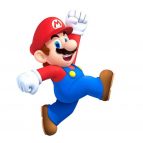 | Platformers, Kart Racing, Party Games, Sports Games, Role-Playing Games, and more | Nintendo | Nintendo | Every major Nintendo console and handheld, including NES, SNES, Game Boy, Nintendo 64, Wii, Switch, and more | Super Mario Bros. (September 13, 1985) | 826.38 million | |
 | Role-Playing Games (RPGs), Card Games, Fighting, Puzzle, Adventure, Mobile Games | Game Freak, Creatures Inc., Genius Sonority (spin-offs) | Nintendo, The Pokémon Company | Game Boy, Game Boy Advance, Game Boy Color, Nintendo DS, Nintendo 3DS, Nintendo Switch, Mobile, and more | Pokémon Red and Green (Japan) – February 27, 1996 | 480 million | |
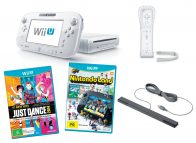 | Sports Simulation, Fitness, Music, and Family Entertainment | Nintendo EAD, NDcube, Ganbarion, TOSE, Eighting | Nintendo | Wii, Wii U, Nintendo Switch | November 19, 2006 | 215 million | |
 | Action-Adventure, Puzzle, Exploration | Nintendo EAD, Flagship, Grezzo, Nintendo EPD | Nintendo | Nintendo Entertainment System, Game & Watch, Super Nintendo Entertainment System, Game Boy, Nintendo 64, Game Boy Color, Game Boy Advance, GameCube, Wii, Nintendo DS, Nintendo 3DS, Wii U, Nintendo Switch | February 21, 1986 | 163 million | |
 | Life Simulation, Social Simulation | Nintendo EAD, Nintendo EPD, NDcube, DeNA | Nintendo | Nintendo 64, iQue Player, GameCube, Wii, Wii U, Nintendo DS, Nintendo 3DS, iOS, Android, Nintendo Switch | Animal Crossing (Dōbutsu no Mori) – April 14, 2001 (Nintendo 64 in Japan, later re-released for GameCube globally) | 78 million | |
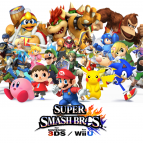 | Platform Fighter | HAL Laboratory, Sora Ltd., Bandai Namco Studios, Game Arts | Nintendo | Nintendo 64, iQue Player, GameCube, Wii, Nintendo 3DS, Wii U, Nintendo Switch | January 21, 1999 (Nintendo 64) | 73 million | |
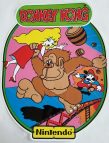 | Platformer, Arcade, Adventure, Puzzle | Nintendo, Rare, Retro Studios, Paon | Nintendo | Arcade, NES, SNES, Game Boy, Nintendo 64, Wii, Nintendo DS, Wii U, Nintendo Switch | July 9, 1981 | 65 million | |
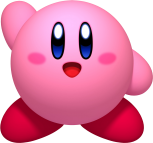 | Platformer, Puzzle, Adventure | HAL Laboratory, Good Feel, Flagship, Dimps, Arika, Compile, Banpresto, Vanpool, Nintendo R&D1, Nintendo R&D2 | Nintendo | Game Boy, NES, SNES, Nintendo 64, Game Boy Color, GameCube, Game Boy Advance, Nintendo DS, Wii, Nintendo 3DS, Wii U, Nintendo Switch | April 27, 1992 (Game Boy) | 50 million | |
 | Puzzle, Edutainment | Nintendo SPD, Nintendo EPD | Nintendo | Nintendo DS, Nintendo 3DS, Nintendo Switch, DSiWare | May 19, 2005 (Japan) | 35 million | |
 | Platformer, Puzzle, Adventure | Nintendo, Arzest, Good-Feel | Nintendo | NES, SNES, Game Boy, Nintendo 64, Wii, Nintendo DS, 3DS, Wii U, Nintendo Switch | December 14, 1991 (NES and Game Boy) | 29 million |
In this article, we explore the best-selling game franchises published by Nintendo in 2024. Discover how these iconic series have evolved, their impact on the gaming community, and what makes them resonate with players year after year. Whether you’re a lifelong fan or new to the world of Nintendo, this list showcases the games shaping the future of gaming while honoring its rich history.
Top-10 Best Sellers
![Best Selling Game Franchises Published by Nintendo [2024]](https://data40.com/wp-content/uploads/2024/12/132-diagram.png)
1. Mario

- Developers: Nintendo
- Publishers: Nintendo
- Genres: Platformers, Kart Racing, Party Games, Sports Games, Role-Playing Games, and more
- Initial Release:
- Debut as Jumpman: Donkey Kong (July 9, 1981)
- Standalone Game: Super Mario Bros. (September 13, 1985)
- Platforms: Every major Nintendo console and handheld, including NES, SNES, Game Boy, Nintendo 64, Wii, Switch, and more
- Sales: 826.38 million
The Mario franchise is the cornerstone of Nintendo’s global success and the most recognizable brand in video game history. Created by Shigeru Miyamoto, Mario debuted as a carpenter named Jumpman in Donkey Kong and later became a plumber in the legendary Super Mario Bros. series.
The franchise spans a wide range of genres, including:
- Platformers (Super Mario Bros., Super Mario Odyssey)
- Kart Racing (Mario Kart)
- Party Games (Mario Party)
- Sports Titles (Mario Tennis, Mario Golf)
- RPGs (Paper Mario, Mario & Luigi)
Each Mario game features vibrant worlds, innovative gameplay, and memorable characters like Luigi, Princess Peach, Yoshi, Bowser, and more. The franchise has a universal appeal, catering to all ages with its approachable gameplay and imaginative designs.
Notability:
- Global Recognition:
Mario is a cultural icon known across generations and geographies, offering unparalleled visibility and cross-promotional opportunities. - Versatile Demographics:
The franchise appeals to a diverse audience, from children to seasoned gamers, enabling broad marketing strategies. - Multi-Genre Success:
The Mario brand extends beyond platformers into kart racing, sports, and party games, catering to varied interests and fostering community play. - Merchandising Powerhouse:
Mario merchandise, including toys, apparel, and collectibles, generates significant revenue and reinforces brand presence. - Cultural Impact:
As the face of Nintendo, Mario is a key player in gaming’s mainstream acceptance, appearing in movies (The Super Mario Bros. Movie), theme parks (Super Nintendo World), and even Olympic ceremonies. - Timeless Appeal:
Mario games consistently rank among the best-selling titles, making the franchise an evergreen asset in gaming history and marketing efforts.
2. Pokémon

- Developers: Game Freak, Creatures Inc., Genius Sonority (spin-offs)
- Publishers: Nintendo, The Pokémon Company
- Genres: Role-Playing Games (RPGs), Card Games, Fighting, Puzzle, Adventure, Mobile Games
- Initial Release:
- Pokémon Red and Green (Japan) – February 27, 1996
- Platforms:
- Game Boy, Game Boy Advance, Game Boy Color, Nintendo DS, Nintendo 3DS, Nintendo Switch, Mobile, and more
- Sales: 480 million
The Pokémon franchise is one of the most successful multimedia franchises in history. Centered around capturing, training, and battling creatures called Pokémon, the series encourages players to “catch ’em all.” What began as a pair of role-playing games for the Game Boy has expanded into a cultural phenomenon encompassing video games, trading card games, an animated TV series, movies, merchandise, and mobile apps like Pokémon GO.
The mainline games follow a turn-based RPG format, where players journey across regions, capturing Pokémon and challenging gyms to become the Pokémon Champion. Spin-offs and mobile titles explore different gameplay styles, ensuring broad appeal.
Notability:
- Global Cultural Icon:
Pokémon is instantly recognizable worldwide, appealing to audiences across all demographics. Its multigenerational appeal makes it an ideal franchise for family-friendly marketing. - Merchandising Empire:
Pokémon’s success extends far beyond games, including toys, apparel, stationery, and more, providing a massive ecosystem for cross-promotion and partnerships. - Cross-Media Success:
The franchise spans anime, movies, trading cards, and mobile apps, offering diverse entry points for consumers and integrated marketing opportunities. - Event-Based Engagement:
Pokémon thrives on event-driven marketing, such as in-game events (Pokémon GO), special edition cards, and community events like Pokémon Day. - Nostalgia and Innovation:
Pokémon consistently appeals to nostalgic fans while attracting new audiences through innovative games and spin-offs like Pokémon Legends: Arceus and Pokémon Unite. - Collaborative Potential:
Collaborations with brands like McDonald’s (Happy Meal toys), Levi’s (clothing collections), and Uniqlo (UT graphic tees) demonstrate the franchise’s marketing versatility.
3. Wii Series

- Developers: Nintendo EAD, NDcube, Ganbarion, TOSE, Eighting
- Publishers: Nintendo
- Genres: Sports Simulation, Fitness, Music, and Family Entertainment
- Initial Release:
- Wii Sports: November 19, 2006
- Platforms: Wii, Wii U, Nintendo Switch
- Sales: 215 million
The Wii Series is a collection of casual games designed to showcase the motion-control capabilities of the Nintendo Wii console. Starting with Wii Sports, the franchise became synonymous with the Wii brand, offering simple yet engaging gameplay experiences suitable for players of all ages and skill levels. Other titles like Wii Fit, Wii Play, and Wii Party expanded the series into fitness, mini-games, and party entertainment.
The games primarily focus on family-friendly activities that encourage physical movement and social interaction, making them staples of casual gaming. The Wii Series emphasized accessibility, with intuitive controls and gameplay designed to appeal to non-traditional gamers, including seniors and families.
Notability:
- Broad Demographic Appeal:
The franchise caters to non-gamers, casual players, and families, making it ideal for marketing to a wide and inclusive audience. - Fitness and Wellness Angle:
Titles like Wii Fit and Wii Fit Plus promote physical activity, offering unique opportunities for partnerships in health and wellness sectors. - Cultural Impact:
The Wii Series played a pivotal role in the Wii’s success, often featured in media coverage and public spaces, elevating the brand’s visibility. - Accessible Gameplay:
With motion-controlled mechanics that require minimal gaming knowledge, the series reached audiences outside the traditional gaming market, such as seniors and rehabilitation patients. - Event-Based Marketing:
The games’ focus on social play makes them perfect for community events, in-store demonstrations, and holiday promotions.
4. The Legend of Zelda

- Developers: Nintendo EAD, Flagship, Grezzo, Nintendo EPD
- Publishers: Nintendo
- Genres: Action-Adventure, Puzzle, Exploration
- Initial Release:
- The Legend of Zelda: February 21, 1986
- Platforms:
- Nintendo Entertainment System, Game & Watch, Super Nintendo Entertainment System, Game Boy, Nintendo 64, Game Boy Color, Game Boy Advance, GameCube, Wii, Nintendo DS, Nintendo 3DS, Wii U, Nintendo Switch
- Sales: 163 million
The Legend of Zelda is one of Nintendo’s most celebrated and enduring franchises, blending action, exploration, and puzzle-solving in richly designed fantasy worlds. The series follows the adventures of Link, a heroic figure destined to rescue Princess Zelda and thwart the evil plans of Ganon or other antagonists threatening the land of Hyrule.
Each game introduces innovative mechanics and iconic items like the Master Sword, Hylian Shield, and musical instruments such as the Ocarina of Time. The series often reinvents itself while maintaining core gameplay elements, with entries like Breath of the Wild redefining open-world exploration.
Notability:
- Iconic Brand Legacy:
With nearly four decades of history, the franchise appeals to both nostalgic fans and new generations, offering extensive marketing potential across demographics. - Cultural Influence:
Games like Ocarina of Time and Breath of the Wild are frequently cited as among the greatest games ever made, solidifying the brand’s prestige and relevance in gaming culture. - Cross-Media Opportunities:
The franchise’s lore and characters have inspired manga, merchandise, orchestral concerts (Symphony of the Goddesses), and animated adaptations, creating diverse touchpoints for engagement. - Innovative Gameplay:
Each game introduces groundbreaking mechanics that can serve as focal points in promotional campaigns, such as the open-world freedom in Breath of the Wild. - Universal Appeal:
The franchise’s themes of heroism, adventure, and discovery resonate globally, enabling international marketing strategies. - Merchandising and Licensing:
The recognizable imagery of the Triforce, Master Sword, and Hyrule Crest has been successfully applied to toys, apparel, and collectibles. - Event-Based Engagement:
With recurring anniversaries and game-specific events, The Legend of Zelda lends itself to celebratory campaigns that drive player excitement and community interaction.
5. Animal Crossing

- Developers: Nintendo EAD, Nintendo EPD, NDcube, DeNA
- Publishers: Nintendo
- Genres: Life Simulation, Social Simulation
- Initial Release:
- Animal Crossing (Dōbutsu no Mori) – April 14, 2001 (Nintendo 64 in Japan, later re-released for GameCube globally)
- Platforms:
- Nintendo 64, iQue Player, GameCube, Wii, Wii U, Nintendo DS, Nintendo 3DS, iOS, Android, Nintendo Switch
- Sales: 78 million
The Animal Crossing franchise is a life simulation series where players take on the role of a human living in a village populated by anthropomorphic animals. Known for its open-ended gameplay, players can customize their homes, interact with villagers, collect items, and participate in seasonal events. The series operates in real-time, with changes in weather, seasons, and events corresponding to the real world.
Key titles like Animal Crossing: New Horizons have expanded the franchise’s scope with extensive customization options, island-building mechanics, and online multiplayer features. The franchise’s relaxing pace and focus on creativity have made it a global phenomenon.
Notability:
- Broad Demographic Appeal:
With its relaxing gameplay and charming visuals, the franchise appeals to a wide audience, including children, adults, casual players, and non-traditional gamers. - Cultural Phenomenon:
The release of New Horizons during the COVID-19 pandemic made the game a social and cultural event, providing a virtual escape and a platform for creative expression. - Customizable Gameplay:
The focus on player-driven customization encourages creativity, making it ideal for social media sharing and community-driven marketing. - Merchandising Opportunities:
Iconic characters like Tom Nook, Isabelle, and K.K. Slider are instantly recognizable, lending themselves to toys, apparel, and collectibles that drive brand engagement. - Seasonal and Event-Driven Content:
Real-time seasonal events create opportunities for time-sensitive campaigns and partnerships, such as branded in-game events or collaborations. - Cross-Media Expansion:
The franchise has inspired merchandise, collaborations (e.g., with Sanrio), and live performances of its music, showcasing its versatility across industries.
6. Super Smash Bros.

- Developers: HAL Laboratory, Sora Ltd., Bandai Namco Studios, Game Arts
- Publishers: Nintendo
- Genres: Platform Fighter
- Initial Release:
- Super Smash Bros.: January 21, 1999 (Nintendo 64)
- Platforms: Nintendo 64, iQue Player, GameCube, Wii, Nintendo 3DS, Wii U, Nintendo Switch
- Sales: 73 million
The Super Smash Bros. franchise is a series of platform fighting games that bring together characters from various Nintendo franchises—and later third-party franchises—for chaotic and competitive battles. Unlike traditional fighting games, the series focuses on knocking opponents off the stage rather than depleting a health bar.
Each game includes a diverse roster of characters, stages inspired by gaming history, and multiple modes ranging from single-player campaigns to online multiplayer. Titles like Super Smash Bros. Ultimate have become cultural milestones, showcasing Nintendo’s rich gaming history and innovation.
Notability:
- Crossover Appeal:
Featuring characters from Nintendo franchises like Mario, Zelda, and Pokémon, as well as third-party icons like Sonic and Pac-Man, the series appeals to fans across multiple gaming ecosystems. - Competitive Gaming and Esports:
Super Smash Bros. is a cornerstone of the competitive gaming scene, providing opportunities for esports sponsorships, tournaments, and community-driven campaigns. - Global Audience:
The franchise’s accessible gameplay mechanics attract casual gamers, while its depth and competitive potential keep hardcore players engaged, ensuring broad demographic reach. - Cultural Relevance:
As a celebration of gaming history, the series garners attention with each new release or roster addition, generating viral buzz on social media and gaming communities. - Cross-Promotion Potential:
The inclusion of third-party characters allows for collaborations and co-marketing opportunities with other game publishers, expanding its marketing footprint.
7. Donkey Kong

- Developers: Nintendo, Rare, Retro Studios, Paon
- Publishers: Nintendo
- Genres: Platformer, Arcade, Adventure, Puzzle
- Initial Release:
- Donkey Kong (Arcade): July 9, 1981
- Platforms:
- Arcade, NES, SNES, Game Boy, Nintendo 64, Wii, Nintendo DS, Wii U, Nintendo Switch
- Sales: 65 million
The Donkey Kong franchise is one of Nintendo’s oldest and most influential series, starting as an arcade game that introduced both the titular Donkey Kong and Mario (then known as Jumpman). Initially a game of dodging obstacles and saving a damsel in distress, the franchise evolved into side-scrolling platformers with Donkey Kong Country (1994), a game that revitalized the series and introduced Kong’s extended family, including Diddy Kong and Dixie Kong.
The franchise includes traditional platforming games, spin-offs like Donkey Konga, and puzzle games like Mario vs. Donkey Kong. Known for its challenging gameplay, iconic characters, and memorable soundtracks, the franchise has become a staple of Nintendo’s lineup.
Notability:
- Foundational Legacy:
As one of Nintendo’s earliest franchises, Donkey Kong holds nostalgic value and strong brand recognition across multiple generations of gamers. - Crossover Appeal:
Characters like Donkey Kong and Diddy Kong have appeared in other Nintendo franchises such as Mario Kart and Super Smash Bros., further embedding them into Nintendo’s broader ecosystem and enhancing cross-promotional opportunities. - Iconic Visual and Audio Design:
From the Donkey Kong Country series’ revolutionary pre-rendered graphics to its iconic soundtracks by composers like David Wise, the franchise is a treasure trove of memorable branding material. - Family-Friendly Gameplay:
The franchise’s engaging yet approachable platforming mechanics appeal to both children and adults, making it ideal for family-oriented marketing. - Expanded Universe Potential:
With the introduction of characters like Dixie Kong, Funky Kong, and Cranky Kong, the franchise offers opportunities for spin-offs, merchandising, and adaptations in other media (e.g., The Super Mario Bros. Movie). - Event-Based Promotions:
Milestone anniversaries and remastered editions, such as the Tropical Freeze Switch release, drive renewed attention and sales.
8. Kirby

- Developers: HAL Laboratory, Good Feel, Flagship, Dimps, Arika, Compile, Banpresto, Vanpool, Nintendo R&D1, Nintendo R&D2
- Publishers: Nintendo
- Genres: Platformer, Puzzle, Adventure
- Initial Release:
- Kirby’s Dream Land: April 27, 1992 (Game Boy)
- Platforms:
- Game Boy, NES, SNES, Nintendo 64, Game Boy Color, GameCube, Game Boy Advance, Nintendo DS, Wii, Nintendo 3DS, Wii U, Nintendo Switch
- Sales: 50 million
The Kirby franchise follows the adventures of Kirby, a pink, spherical creature with the ability to inhale enemies and copy their abilities. Set in the whimsical world of Dream Land, the series is known for its accessible gameplay, colorful environments, and charming characters. While the games are easy to play for beginners, they also include additional challenges and collectibles for seasoned players.
Core games, such as Kirby’s Adventure and Kirby: Star Allies, emphasize platforming and ability-based combat, while spin-offs explore puzzle-solving, multiplayer battles, and even rhythm gameplay. Kirby’s versatility and approachable design make the series a staple of Nintendo’s family-friendly offerings.
Notability:
- Universal Appeal:
Kirby’s cheerful design and approachable gameplay attract players of all ages, from young children to longtime fans of the franchise. - Merchandising Potential:
Kirby’s iconic appearance makes him a perfect fit for plush toys, apparel, and collectibles, enhancing the franchise’s market reach. - Cultural Recognition:
Kirby is one of Nintendo’s most recognizable characters, featured prominently in games like Super Smash Bros., increasing his visibility across gaming audiences. - Diverse Gameplay Styles:
With spin-offs in genres like multiplayer brawlers (Kirby Fighters) and puzzle games (Kirby’s Pinball Land), the franchise offers diverse entry points for marketing to different gamer segments. - Family-Friendly Focus:
The franchise’s emphasis on cooperative gameplay and accessible mechanics aligns with family-oriented marketing strategies. - Cross-Platform Success:
From handhelds to consoles, Kirby has consistently performed well, making him a versatile and reliable character for Nintendo’s marketing campaigns.
9. Brain Age

- Developers: Nintendo SPD, Nintendo EPD
- Publishers: Nintendo
- Genres: Puzzle, Edutainment
- Initial Release:
- Brain Age: Train Your Brain in Minutes a Day!: May 19, 2005 (Japan)
- Platforms:
- Nintendo DS, Nintendo 3DS, Nintendo Switch, DSiWare
- Sales: 35 million
The Brain Age series is a collection of puzzle video games inspired by the research of Japanese neuroscientist Dr. Ryuta Kawashima. Designed to stimulate cognitive functions, the games offer a variety of exercises, including mathematical problems, reading aloud, and Sudoku puzzles, aiming to “train” the brain and assess its “age.” The series gained widespread popularity for its engaging approach to mental fitness and accessibility to a broad audience.
Notability:
- Appeal to Non-Traditional Gamers:
The series attracted a diverse demographic, including older adults and individuals not typically engaged with video games, by focusing on cognitive improvement and daily mental exercises. - Educational Value:
Marketed as tools for mental stimulation, the games found use in educational settings and among users seeking to maintain cognitive health, broadening their appeal beyond entertainment. - Innovative Use of Hardware:
The games utilized unique features of Nintendo consoles, such as the DS’s touch screen and microphone, enhancing user engagement and showcasing the hardware’s capabilities. - Global Success:
The franchise’s universal themes of brain training and mental fitness resonated worldwide, leading to significant sales across various regions and contributing to the success of the Nintendo DS platform. - Brand Collaborations:
Featuring Dr. Ryuta Kawashima lent scientific credibility to the series, allowing for marketing strategies that emphasized both fun and educational benefits.
10. Yoshi

- Developers: Nintendo, Arzest, Good-Feel
- Publishers: Nintendo
- Genres: Platformer, Puzzle, Adventure
- Initial Release:
- Yoshi: December 14, 1991 (NES and Game Boy)
- Platforms:
- NES, SNES, Game Boy, Nintendo 64, Wii, Nintendo DS, 3DS, Wii U, Nintendo Switch
- Sales: 29 million
The Yoshi series is a spin-off of the Mario franchise, starring the lovable dinosaur Yoshi. Initially introduced as Mario’s companion in Super Mario World, Yoshi gained popularity for his unique abilities and charm, eventually earning his own franchise. The series is known for its vibrant art styles, creative level designs, and focus on collecting items.
Core gameplay often involves platforming with unique mechanics such as swallowing enemies, laying eggs, and flutter jumping. Titles like Yoshi’s Island and Yoshi’s Crafted World emphasize exploration and creativity, appealing to younger audiences while still providing challenges for seasoned players.
Notability:
- Family-Friendly Appeal:
Yoshi’s colorful and playful design, combined with approachable gameplay, makes the series a favorite among families and younger gamers. - Distinct Art Styles:
Games like Yoshi’s Woolly World and Yoshi’s Crafted World use unique aesthetics, such as yarn or handcrafted visuals, making them stand out and ideal for visually engaging promotional campaigns. - Cross-Franchise Presence:
Yoshi frequently appears in other Nintendo series like Mario Kart, Super Smash Bros., and Mario Party, reinforcing his visibility and popularity. - Merchandising Opportunities:
Yoshi’s adorable design and iconic green color make him a staple for plush toys, clothing, and collectibles, driving brand engagement. - Educational and Accessibility Potential:
The games’ focus on exploration and puzzle-solving, coupled with their inclusive difficulty levels, broadens their market appeal, including younger and casual gamers.
Nintendo’s Timeless Treasures
Nintendo’s best-selling franchises in 2024 highlight the company’s unwavering ability to create games that resonate with players across generations. These iconic series continue to set benchmarks for creativity, gameplay innovation, and storytelling, solidifying Nintendo’s place as a leader in the gaming industry.
From the timeless adventures of The Legend of Zelda to the endless charm of Animal Crossing, each franchise offers a unique experience that captivates fans worldwide. Nintendo’s commitment to quality, accessibility, and innovation ensures that their games remain at the forefront of the industry, inspiring both loyal fans and new players alike.
As we look to the future, it’s clear that Nintendo’s franchises will continue to shape the gaming landscape, offering experiences that are as timeless as they are groundbreaking. Whether you’re revisiting a classic or diving into a new chapter, Nintendo’s games promise adventures that endure for years to come.
Nintendo’s upcoming console, referred to as the Switch 2, is expected to bring exciting advancements while incorporating some cost-saving measures. Notably, the console will reportedly feature an LCD screen instead of the OLED display seen in the current high-end Switch model.
Nintendo’s first home console released internationally was the Nintendo Entertainment System (NES), originally launched as the Family Computer (Famicom) in Japan on July 15, 1983. This iconic 8-bit console was later introduced to markets across North America, South America, Europe, Asia, Oceania, and Africa, becoming a cornerstone of Nintendo’s global success.
Mario, created by Japanese game designer Shigeru Miyamoto, is Nintendo’s beloved mascot. He stars in the Mario franchise, frequently appears in the Donkey Kong series, and remains a central figure in Nintendo's legacy, embodying the company's playful and imaginative spirit.


